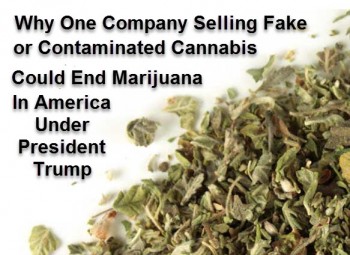Regarding the marijuana Ponzi scam Juicy Fields, Swedish attorney Lars Olofsson has filed a class action lawsuit against Facebook and Instagram's parent company Meta (META). The scam affected over 800 persons across about 80 countries, particularly in Spain, France, Portugal, Germany, the Netherlands, and Malta, and each one of them is in support of the ongoing legal battle.
The lawsuit alleges that Facebook failed to supervise who they authorized to utilize the platform and is in apparent defiance of Meta's own terms of service. According to Attorney Olofsson, facebook’s inactions are gravely negligent. Infractions of the Swedish penal code for fraud, aggravated fraud, aiding and abetting fraud and aggravated fraud are among the accusations brought against Meta.
The prosecution's request to continue the case against Mark Zuckerberg, CEO of Meta Platforms Inc. META, was granted by a Swedish court in Lule. Olofsson said he filed a case in the Swedish city of Lule because it houses the Meta network's central data center. Olofsson asserts that the court's prompt ruling, which came about just 36 hours after the case was filed, is already a "major win" that will "send a warning to the others we have in the legal route that we are continuing forward, full throttle, with further lawsuits in the meanwhile." Olofsson told the Green Market Report that he would also be taking legal action against Google, CNN, and Youtube for the roles they played or failed to play while the scam was active.
The Beginning: The JuicyFields Ponzi Scam
JuicyFields was founded in 2020 and provided a service where investors, or as the business referred to them, "e-growers," could take part in the cultivating, harvesting, and selling of cannabis plants with monthly returns ranging from 6% to 14%. According to JuicyFields, 500,000 people utilize the site, primarily in Europe and Latin America. With a minimum investment of €50 (about $51), users may invest up to €180,000 ($183,000).
Cash could be added and taken out via a bank transfer or digital currency. Users could maintain the plants in virtual greenhouses, purchase and sell them, and get compensated for their transactions. Midway through July, JuicyFields abruptly ceased operations. Cash withdrawals were stopped, juicyfields profiles were deleted from social networking sites, and everything vanished without a trace. As a result, its users could not access their accounts and withdraw.
Investigators claim the business attracted investors by launching ad campaigns through social media influencers, referral schemes, and the publication of articles in a number of news outlets, thereby establishing a reputation that would draw more users to the platform. JuicyFields claimed to have agreements with leading members of the cannabis business, like Aurora Cannabis and Canopy Growth, among others, according to a journalistic investigation by the Spanish publication El Paso Financiero. However, major players in the cannabis sector denied having any connection to the cannabis investment website. The scope of the alleged deception by JuicyFields is unclear. Tens of millions to billions of dollars have been estimated as part of the cannabis company scam.
Lawsuit Action Against Social and News Media Platforms
Olofsson became interested in the fraud since it affected thousands of people worldwide and made headlines. The lawyer is already preparing to bring a class action lawsuit against a number of social and mainstream media outlets, which he claims assisted in the scheme's advancement.
At the time, Olofsson said to Green Market Report, "I'm now pursuing legal action against Facebook, Google, CNN, and YouTube, to start with. All of them enabled JuicyFields to advertise on respective platforms or publications in addition to running regular accounts.
The governments of Germany, the Netherlands, Switzerland, and Cyprus will also be the targets of Olofsson's criticism for "a terrible absence of their financial authorities who failed to detect what was going on."
At the time of the platform's collapse, which revealed the truth of fraud, there were around 125,000 investor accounts on it. Although Olofsson believes the $2 billion to $2.5 billion in those 125,000 accounts is likely already gone, he will still be representing about 800 litigants to ensure some sort of justice is delivered. Olofsson also revealed that he has a lot of information on several companies, people, government authorities, and banks who neglected their duties or allowed JuicyFields to engage in sales and marketing for the two years that the scam was active.
The Facebook Lawsuit
In 2011, Meta opened its first data center outside of the United States in Lule, just north of the Arctic Circle. This facility serves "nearly a billion Facebook and Instagram users, which includes most of my clients," according to Olofsson. "This is where the crime occurred according to the premise. My clients came into contact with JuicyFields' scam through these servers.
The complaint states that "the major marketing was done through social media where they engaged with new investors and developed groups where they could interact and foster a feeling of community and also encouraged others to come along and invest in the company.
Olofsson claims that Zuckerberg acted carelessly as CEO of Meta by neglecting to monitor who was utilizing the company's services. Additionally, it asserts that his careless actions were a breach of the business's own terms of service, which is illegal under Sweden's anti-fraud laws. Such laws require criminal penalties of two to six years for violations.
He further mentioned that additional legal actions would be taken both domestically and abroad. The attorney previously stated that although the inquiry is difficult, to put it mildly, 70 people, 60 banks, and 40 firms connected to JuicyFields' business and advertising have already been effectively identified.
Bottom Line
By taking on internet powerhouses for lack of due diligence on illegal operations carried out by their clients, marketers, and affiliates, Olofsson appears to be creating a precedent. He is pursuing corporate giants in the banking and media industries, which helped JucyField's unlawful activities by indirectly profiting from them as well as some well-known cannabis legalization activists and supporters who were on Juicyfield’s payroll.






